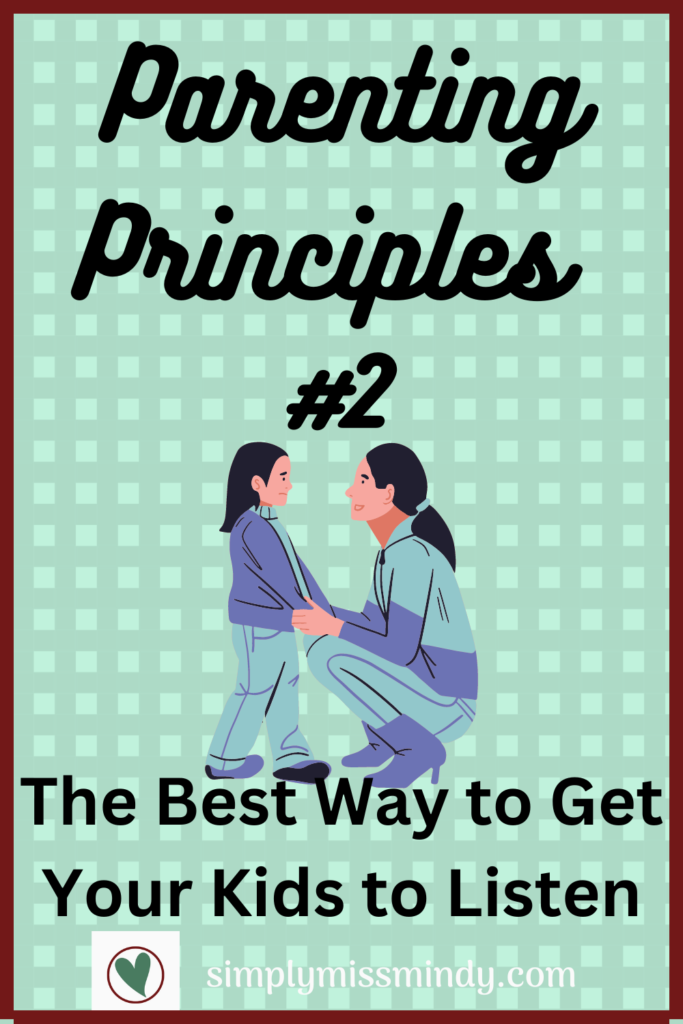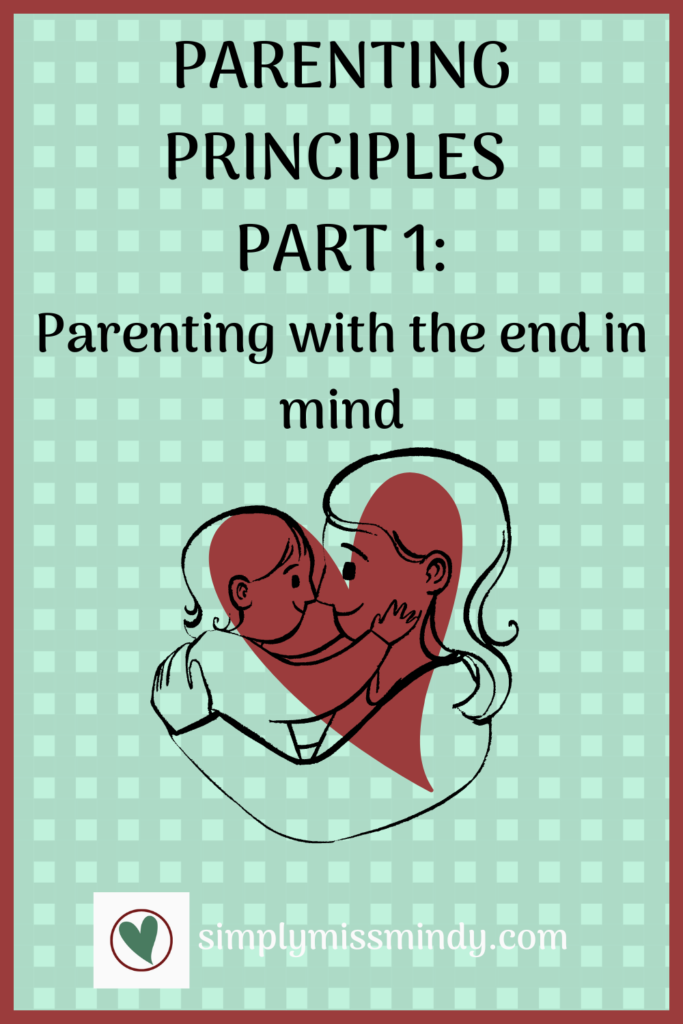Do you ever feel like everything you say is just noise to your kids?
Or do you often wonder, “Why don’t they listen to me?”
Today, I hope to help you solve the problem of kids who don’t listen to what you say.
If you have been following, you know that this is the second in a series of posts outlining some principles of parenting that I hope will be an encouragement to you. (If you missed the first one, it can be found here.)
I don’t pretend to have all the answers, and I haven’t always done everything right when it comes to my kids, but I DO have 30 years of experience as a parent, and so far all my kids have launched successfully. So in light of that, I decided to share some of my best parenting advice.
I think that getting your kids to listen is one of the most important things you can do as a parent. Not only do you have lots of wisdom to impart (yes! you do!), listening well can help your child avoid dangerous situations. Just imagine your child running toward a busy road. You NEED to be able to call their name and have them IMMEDIATELY stop and listen.
Less dire, but just as important, your child needs to believe that you are trustworthy.
Which brings me to today’s principle:
PARENTING PRINCIPLE #2: SAY WHAT YOU MEAN, AND MEAN WHAT YOU SAY.
I know it seems simplistic, but this parenting principle is the absolute best way to raise kids who listen to you. And although it’s a simple concept, I’m the first to admit that it’s not easy.
As a parent, you have to always be on your game. In order to say what you mean and mean what you say, there are a few steps you must take.
1. Be very clear with your expectations and the consequences of not listening.
For instance, if you are in Target, and your child runs ahead of you and gets out of your field of vision (a definite safety issue), you can stop and get down on their level and look them in the eye and say, “You need to stay right here by mommy. If you don’t stay by me, you will need to ride in the cart.”
Now you have told your child very clearly what the expectation is (staying right next to mommy) and what the consequence will be of not meeting that expectation (riding in the cart).
2. Be very, very careful what you say, because once you have said it, you must follow through.
Anytime you tell your child that you are going to do something (or not do something), you have effectively made them a promise, and they need to know that you are going to keep that promise.
Continuing our Target scenario, once you have given them the expectation and the consequence, be prepared to follow through. When your child moves away from you, you should immediately, and without emotion or reminding, pick them up and put them in the cart. Strap them in if you need to, and steel yourself, because they will not like the fact that you are giving them the consqence you promised.
Now, a couple of points here.
First, you need to know that your child will test your resolve, and they may do so multiple times before they believe what you say. Be ready!
Second, they will also test how far they can push the limits of your expectations. They may start by just moving one step away from you. BEWARE!! If you don’t consider this an act of disobedience, they will push further and further. One step is still not following expectations. You have said it, so you must do what you said.
Third, please notice that the consequence matched the infraction. Riding in the cart is the natural result of not staying next to you. Taking away screen time later in the day, as an example, is not related to what happened and won’t have the same effect.
Fourth, I need to quickly address the idea of “counting”. I know many parents who, when their kids test the limits, count to three before implementing the consequences. I have to tell you, I’m not a fan. Really, this just tells your child that they have three extra seconds before they need to do what you asked them to do. Think back to our running toward the road scenario: three seconds could change everything. Please, don’t take the risk.
And the last point: take the time to calmly explain to your child that they are facing the consequence of their own choice. You told them clearly what you expected of them; they chose not to meet that expectation. You told them clearly what the consequence would be, and the fact that they now must sit in the cart for the duration of your time at Target was their own choice. My advice would be to do it right then and there, even while they cry and/or scream. Keep calm, and don’t buy in to the emotion of the moment.
You see what I mean when I say it’s not easy? It’s downright hard.
A couple more steps:
3. When it’s all said and done, and you are in a quiet moment with your child, go back over what happened.
Snuggle your child close, and gently remind them. “Remember when we were in Target today, and mommy told you that you needed to stay close or else you would need to ride in the cart? And remember that you didn’t do what mommy said? And remember that you had to ride in the cart for the rest of the time in Target because you didn’t stay by mommy? You didn’t like that very much, did you? Precious, mommy loves you, and mommy needs you to listen when I tell you something. When I tell you something, if you choose not to do it, you will need to have the consequence.”
4. Try again next time the situation comes up.
Next time you go to Target, before you get out of the car, talk about it with them one more time. “Sweetheart, do you remember what happened last time? Why did you have to ride in the cart? Let’s try again today. Please stay right next to mommy while we are in Target. If you can’t stay right next to me, you will need to ride in the cart. Do you understand?”
Don’t be surprised if it takes multiple trips to Target for your child to believe that you mean what you say. And when that day comes, you will be much closer to having a child who listens.
I know this post has gotten long, but I want to give you one more bonus point:
5. If you are married or co-parenting, make sure you are both on the same page.
One of the best things you can do for your child is to be united in your parenting. Make an agreement: if one of you says something, the other will back it up, every time. A direction from one parent is a direction from both of you.
I have to tell you, you are both going to make mistakes. You will say things that later you realize were not important, and you may even realize you asked something of your child that wasn’t necessary. But once it’s been said, it has to be followed through, by both parents.
Later, when the child is in bed, talk about what happened. You may say to your spouse, “That thing you said, I didn’t think that was important. Let’s decide what we’re going to do if we are in that situation again.” Or he may say, “I didn’t agree with you at all when you said X to the child. I backed you up so that he would know we meant what we said, but let’s not make that an issue next time.” Parenting is hard, and it’s made even harder if you aren’t both in agreement, at least in front of the child. Hash out the details later.
Phew, that was a lot to digest. I hope what I’ve said is a help and encouragement to you. Please leave a comment and let me know if this post was beneficial.
Blessings, Mindy



